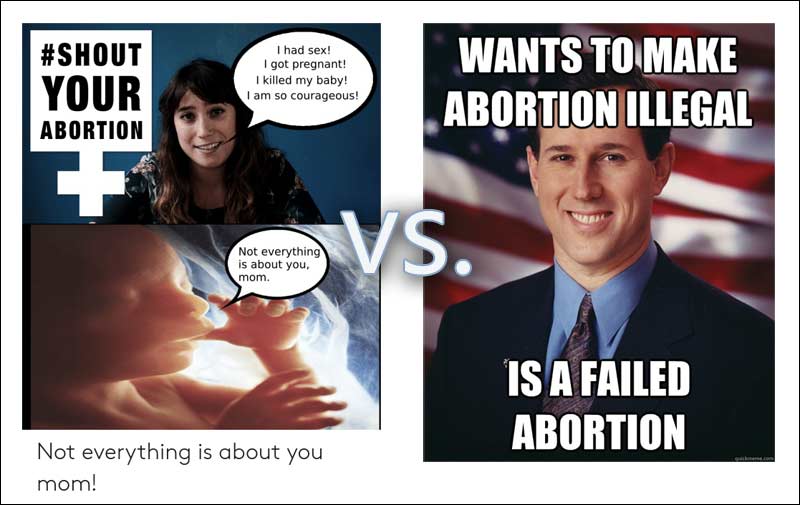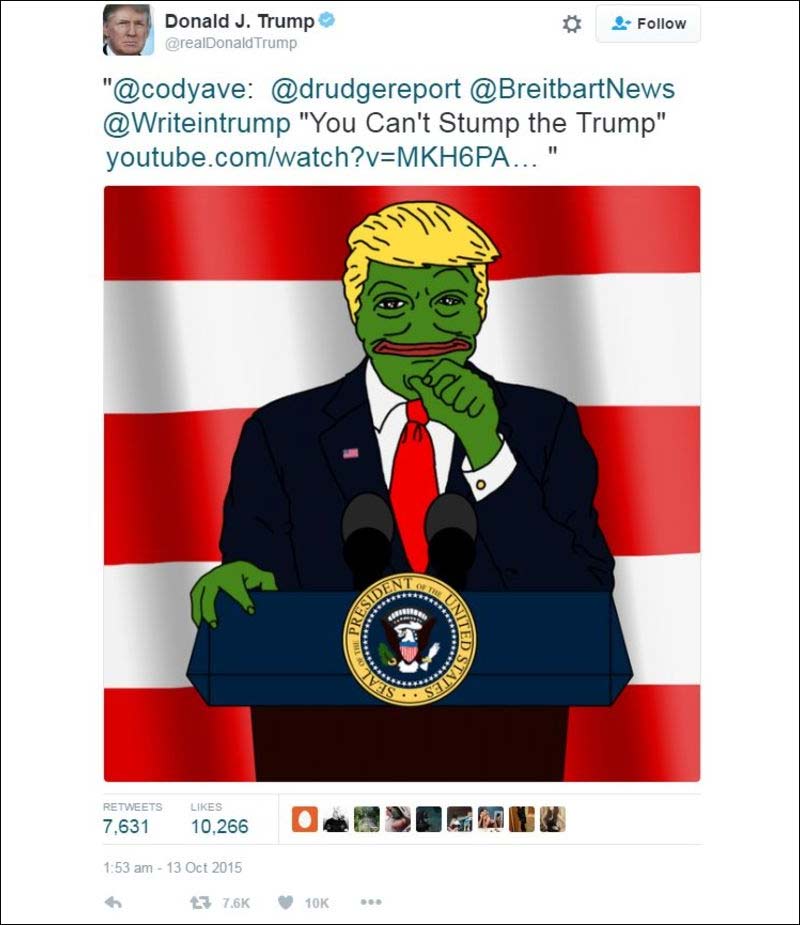I read the other day an outstanding article about abortion by the always wonderful Caitlin Flanagan —
“The Dishonesty of the Abortion Debate”
by Caitlin Flanagan
The essay is nuanced and complicated and full of insight and intelligence. It cuts across party lines and cannot be described as pro- or anti- abortion. I live for these kinds of articles. It is the opposite of propaganda. Her argument is unconventional. It does not fit neatly into the convention ruts most tread in looking at abortion. It is the way I try to think through difficult and complex issues. These sorts of issues are the ones worth engaging.
As a high school teacher I urge my higher-level students to move from the simplistic and child-like thinking of youth to the complex and adult reading and writing demanded by college professors: “Leave childhood and black-and-white thinking behind you, and emerge into the adult world which consists of innumerable and maddening shades of gray.” Most 17-year olds are only too ready to ditch their childhoods. They want to appear more like adults in their written expression. They want to graduate and go off to college. They want to grow up. Or at least a large part of them does, even if the prospect scares them.
But it appears to me that the adult world too often is reverting back to childish thinking, mostly due to social media and memes. It is like too many adults are going back before high school to middle school. Comedian Ricky Gervais claimed that looking at Twitter posts is like reading the gossip scrawled on the walls of public bathroom stalls. But it appears Americans, especially younger ones, are vulnerable to this gossipy bandwagon pseudo-thinking.
The best example are memes. On the one side, there is the sort of dense thinking that Flanagan displays in her article about abortion. Then there are memes ready designed to be shared on social media. Let’s look at one “pro life” and one “pro choice” meme side by side:

They are ironic and snarky, and they get a quick laugh without requiring any real sustained thought.
People nowadays are very likely to view and chuckle about and share some meme about abortion or any other controversial topic on Twitter or Instagram. They are much less likely to read entirely and process the complicated ideas posed by Flanagan about abortion. We are lazy, hurried, and impatient. Memes carry weight on social media (and youth culture), sustained arguments in The Atlantic less so. I can see high school students looking at Flanagan’s article with horror. “There are so many words….” they say to themselves silently. This is what they ask out loud to the teacher: “You really want us to read all that?” It is not entertaining in the sense that perusing memes are. It costs effort. It takes time.
Donald Trump is the culmination of this sort of thinking, in my opinion. Politics as entertainment, and disinformation spread like poison through information networks. Doctored photos and conspiracy theories, like the “birther” one Donald Trump led back in 2011 about whether Barack Obama was born in the United States or not. That was a harbinger of things to come.
Then in 2016 presidential candidate Trump engaged in a campaign to show how thoroughly corrupt Hillary Clinton was. I do not pay attention to online “viral” campaigns, so I did not see these allegations passing through social media. But people I normally respect as mature thinkers would tell me how Hillary was next to Satan in the blackness of her depravity, and I would know they had been exposed to the campaign to besmudge her. This was more of the “birther” business and writing on the bathroom walls to undermine someone’s good name. This was an influential campaign that occurred far below the level of “elite” conversation at The Atlantic Monthly or New York Times. There was no fact checking taking place on social media about whether Barack Obama was born in Hawaii or Kenya. People did not care what professional journalists had to say, or what the objective facts of the case were. Or maybe it was just to undermine the idea that there are objective facts? Right and wrong? True and untrue? George Orwell’s ideas from “1984” about the corruption of political language and the blurring of objective truth finally coming true?
You and I, esteemed reader, might laugh at the Obama birther controversy. But people believed it. It went “viral” and influenced public option. In the age of social media disinformation and propaganda, a lie can wake up and make its way around the world twice before the truth even gets out of bed and put its pants on. Is that what happened with Hillary Clinton in 2016? Hillary, long associated with her lothario-like husband the former president Bill Clinton, was an unpopular figure for many Americans, but the online slander campaign from domestic and foreign sources did not help.
In the current impeachment controversy, I see Trump starting alternative theories which —as far as I can see — have no basis in fact. These seems to be this narrative that former VP Joe Biden’s son Hunter Biden helped Ukrainians to steal money from their own people, or that it was the Ukrainians and not the Russians that meddled with American social media networks during the 2016 presidential campaign. No independent expert thinks these claims have any value, but Trump does and he knows best. And so Trump was justified in delaying military aid approved by Congress to the Ukraine to get to the bottom of that supposed morass of corruption in the Ukraine. Numerous government experts in the region have directly disputed this narrative, but no, Trump is going with his gut intuition and it is right. His distortion machine is busy pushing these conspiracy theories that gain traction among a certain element of a credulous public. What is exactly true or not, is malleable via online publicity campaigns. You can push a certain narrative, despite the facts on the ground. Politicians have always sought to do this, but social media gives them new tools to push the “big lie.” Hitler would have loved it! I recently read one author who claimed Facebook, Russian bots, and “weaponized memes” on the Internet were responsible for the election of Donald Trump and the rise of the alt-Right — yes, that is right, Hillary Clinton was defeated in November 2016 by memes circulated on social media.
Hillary Clinton, slandered by online disinformation campaigns orchestrated by Donald Trump’s campaign (and Russian bots)? What might happen in the future with “deep fake” videos where it becomes almost impossible to differentiate between fact and fiction? When the technology of mass media lying becomes more polished than it is now?” As with the earlier Obama “birther scandal” and Hillary Clinton in the 2016 election, might rumor and gossip carry more weight than fact and proof in the “public bathroom stall” court of opinion on social media?
I have seen the same with the suicide of billionarie pedophile Jeffrey Epstein. I will wait for definitive evidence before I draw any conclusions as to whether Epstein killed himself or was murdered in prison. But I see that meme campaigns are being waged online on the subject which have offline consequences. It is as if gossip, hearsay, and bandwagon thinking have been elevated to newly important status. It is as if the adult world of public dialogue has devolved to the level of high school drama. There is salacious intrigue and inflammatory accusation in a photo and a few words, but no real proof or reasoning. Is it gossipy entertainment? A serious political charge? Or is it that modern creation — “infotainment.”
Maybe I should stop having my students construct careful arguments using words and logic, and have them start making memes. But that goes against everything I believe in as both teacher and citizen.
I have talked about Donald Trump and his right wing conspiracies. But it goes both ways politically. Left wing social media is full of “social justice warriors” making similar simplistic, toxic, and tendentious arguments. America is full of racist and sexist “white males” upholding the “patriarchy.” These people pass around the same 246 character posting and images in their meme echo chamber, and they have a simplistic narrative online that would be harder to sustain in the complicated real world.
What is missing here? Nuance. Complexity. Shades of gray. The lone individual searching for the truth (as Flanagan does) is not at play. Instead the hive mind is emoting and conforming to groupthink and bandwagon cheering. I have heard people describe Twitter as a toxic pool of negativity, and that is why after thinking about it I took the conscious step of leaving social media. I had social media accounts for decades, like everyone else. But as I saw events develop I reflected on what social media had become. I did not like what I saw, and I thought about it for months. Finally, I carefully and deliberately abandoned them. It is the cash starved mass media sensationalizing the news to chase clicks and advertising revenue by attracting attention and readership; it amplifies the more extreme arguments, and it shrinks complicated arguments into 246 characters and juveniles and degrades the whole process. It is a step backwards, not forwards, in our national debate. Maybe not all the time, but the vast majority of the time. I am glad I am out of it. I imagine there are adults out there reading this who are required to have a Twitter account for their job, and they wish they could just delete it. Be free from the psychic cost of it all.
There are some who will say that historically marginalized groups have used social media to gain a voice they previously did not have. That it has given young people the power to organize online and effect change. I don’t disagree that it has given them a voice, but I disagree that the voice it has given them has led to improvement. It has led to strident calls for immediate change no matter what others might think, and it has done so in a strident manner that brooks no compromise. They are not asking for change; they are demanding it. Now. For example, some of the students at high schools where mass shooters have struck have taken to social media to call for school walkouts demanding new gun laws, in collaboration with established gun control groups and adult politicians who want the same thing. When the smoke finally cleared, little change had occurred in real life. Their strident demands for more gun control laws just led to anger and further digging in on the pro-gun side, and we are back at a stalemate. Expressing outrage and demanding satisfaction is easy, and is perhaps endemic to the young; bridging differences, creating compromise, and getting something done is hard, and is not often seen among the young. As Aristotle asserts: “Anybody can become angry; that is easy. But to be angry with the right person and to the right degree and at the right time and for the right purpose, and in the right way – that is not within everybody’s power and is not easy.” It is exactly thus. Overheated online rhetoric has made the situation worse, not better, in my opinion. It has not created any real lasting change anywhere that I have seen, but has contributed to a heightened tension and ideological stalemate. Social media in America is people shouting past, not communicating effectively with, each other. When Americans of different opinions meet on social media, they do it to troll and attack each other, especially among the young. Social media did not start the increasing polarization we see afflict the country, but it has accelerated it. It is akin to giving matches to the arsonist.
As I see it, the symbols of our social media political age are President Donald Trump and Congresswoman Alexandria Ocasio-Cortez. They are the flip sides of the same coin. For both politics is theater and preening, headquartered on social media; neither is interested in compromise or reaching across the aisle to the political opposition; it is a model for stalemate and dysfunctional government. Neither Trump nor Ocasio-Cortez had any experience at all in government at any level before winning election to their current positions — they are both beginners, rank amateurs. But they know how to whip up their “base” on Twitter. They are demagogues. They both hope to drive their political opponents into the wilderness and be the sole winners in our culture wars, leading America finally to the promised land, but the other side does not seem to be going away. Trump and Ocasio-Cortez see the other political party not as a rival to compete with but an enemy to be vanquished. “If you understand the man on the other side as your enemy, he will understand himself that way, too.” observes writer Kevin Williamson in an article posted today. “That is a fine strategy for demagoguery, but a poor one for for republican self-government.” Politics as zero sum struggle, blood-sport, or even mortal combat. Trump and Ocasio-Cortez will direct their campaigns from social media, but nobody will win this political war.
In more normal times, working politicians sit down and hammer out compromise legislation which gets us through the day. Trump and Ocasio-Cortez have little interest in this. They want to wage relentless 24/7 culture war on social media to vanquish the political opposition. Twitter is where they will direct their campaigns. Their followers will fight in their online mentions underneath their postings. Little constructive will come of it. “It is fairly easy to produce heat, but very tough to produce light,” Jim Lehrer once claimed. How true.
Maybe sometime in the future social media will have a more helpful role to play in American political life, but I don’t see it. There have always been political firebrands in the United States who were more interested in burning down the barn than building it up, but social media has given them a power they did not have previously. If you thought American political figures Huey Long or George Wallace (or Charles Coughlin or Angela Davis) were a nightmare in the age of radio and TV, think about how much more they could mix things up in the age of social media. There is much truth in the old Marshall McLuhan dictum: “The medium is the message.” We are in the political age of disinformation, misdirection, bandwagoning, mob-trolling, and the artful meme. The only person I see unequivocally benefiting in political terms in this arena is the ex-KGB agent turned Russian dictator, Vladimir Putin. It is as if the cultural DNA of Putin’s new-Russia has spread overseas via the Internet and social media ether — “nothing is true and everything is possible.” (Peter Pomerantsev). Why exactly did we let this happen? Should we re-label it “anti-social media”? Donald Trump has taken to social media-era of politics like a duck to water.
I have noticed Twitter has tried to make some changes. “We have witnessed abuse, harassment, troll armies, manipulation through bots and human-coordination, misinformation campaigns, and increasingly divisive echo chambers,” Jack Dorsey, the company’s CEO, wrote back in 2018, claiming that Twitter would begin “building a systemic framework to help encourage more healthy debate, conversations, and critical thinking.” But the service continues toxic almost two years later. The developer who created Twitter’s retweet function in 2009, Chris Wetherell, has since compared it to handing “a four-year-old a loaded weapon.” It is an apt analogy.
Young people are the ones using social media the most, and they are the ones most shaped by it. They too often lack perspective to see the “big picture.” They are the most prone to simplistic thinking; they are most vulnerable to being used. The disinformation and trend-chasing on social media is dangerous to all who use it, but it is almost entirely young persons who are converted to extremism. Young people are the ones targeted and recruited into cults. They are not kidnapped. They join.
I read recently about how the United States will refuse to allow ISIS fighter Hoda Muthana to return to the country. Muthana was given a smartphone by her father after graduating from high school in Alabama, and she took to it with panache. Muthana claims she was almost immediately seduced by online social media images by ISIS viewed on her phone — photos of executions and the righteous and pure struggles of Muslims in Syrian and Iraq were involved in. She took the money her parents had saved for her college tuition and in 2014 flew to Syria and joined ISIS. Four years later, Muthana has a child after having married three ISIS fighters who died in combat or disappeared, and she is so sorry. She regrets having traveled to Syria and joined ISIS. She and her baby live precarious lives in a refugee camp, and Muthana says she has ruined her life. She is so very sorry. I bet she is.
Many tens of thousands of Muslims, mostly in Western Europe, but some in the US, have been similarly seduced online by ISIS propaganda and risked everything to travel to the Levant and join the fight. I have heard some rationalize such an incredibly stupid decision in terms of anti-Muslim prejudice left them vulnerable to such arguments. Bullshit. If you could not use your mind to think through clearly what you were doing in joining ISIS, you stand accused of having no brain to use. There was plenty of credible information about ISIS online and off, if you had eyes to see and a brain to think with — you can only be seduced if you are willing to be seduced. “But I saw the ISIS videos on Twitter! They were so powerful!” Nonsense. And being only 20-years old is no excuse. The vast majority of Muslims in the West knew better than to travel to the battlefield and join ranks with ISIS fighters.
The exact same thing has happened with some who are seduced by online alt-Right propaganda to hate Jews or shoot at immigrants. The Christchurch shooter in New Zealand, Poway and Pittsburgh shooters killing people in synagogues, the El Paso mass shooter targeting immigrants from Mexico — they all are reported to have been radicalized online through sketchy social media sites and accounts. I have heard the argument made that too many young men without clear guidance on how to be a man search for help online, and all too often they find it in the wrong place — and the rest is history. They are seduced by alt-Right extremists, whatever exactly that is. But joining neo-Nazi organizations that preach death to Jews? Did you fall asleep entirely during 10th grade when they taught about WWII and the Holocaust? Do you not have even the rudiments of a historical understanding that would clearly show fascism was a bad idea defeated on the battlefield finally in 1945 at great cost in American blood and treasure? With millions of innocents around the world killed in gas chambers, mass shootings, and pitched combat? Mass ethnic cleansing? Really?
I wonder if the muddying of fact and fiction — conspiracy theories online and disinformation, with skin-deep poses masquerading as ideology — has made it much more difficult to gain any wisdom with respect to politics and history. The Internet has become a two-edged sword which can help or hurt its user. Maybe the neo-Nazi ideology seems appropriate when algorithms put you in contact with far right extremists until you find yourself in a neo-Nazi “echo chamber” with tons of other extremists? In an ideological silo online where everyone reinforces each other’s beliefs? Maybe it would have been a good idea to seek out contrary opinions, too? Look beyond your new online “friends” and check in with your real life friends? (Or maybe you have few or no real life friends, and this is what you are searching for online?) Was it a good idea to exchange your real family for an online one? (Maybe so, maybe not?) Are you making healthy choices? The onus on you, the information consumer.
I was talking about extreme right wing politics and fascism, but the same could be said about the left wing and communism. I have seen teenagers and young adults with hard left politics embrace the Soviet Union and communism in their social media accounts. They decry the evils of capitalism and call for more equality, and they call for banning private property or confiscating all “excess wealth.” They sport the hammer and sickle from the Soviet days. I saw one “Democratic Socialist” from Brooklyn who had hammer and sickle tattoos on each of her breasts. They are in earnest, as was Lenin and Mao in the days of yore. But had they also not paid attention in their high school history class? Did they not learn about the murders of the kulaks, various Five Year Plans, the Great Leap Forward, the show-trials, executions, empty storefronts, the secret police — what “the dictatorship of the working class” meant in real life?
I remember standing in front of the giant statue of the Karl Marx statue in the central Mitte district of Berlin in 1991, not long after the Berlin Wall came down. The newly liberated East Germans, commenting on their recent communist past, had painted Marx’s hands with red paint to symbolize the blood on Marx’s hands. But I guess the history of the 20th century is a long time ago now.
It is almost as if the rise of the Internet has helped to destabilize world politics and coincided with the rise of dictators and extremist movements. It appears as if we are returning to the “locust days,” as Winston Churchill described them, of the 1930s in Weimar Germany, where communists and fascists fought openly in the streets — or, at least, that is how it can look on Twitter.
As Yeats wrote in his poem, The Second Coming:
Turning and turning in the widening gyre
The falcon cannot hear the falconer
Things fall apart; the centre cannot hold;
Mere anarchy is loosed upon the world,
The blood-dimmed tide is loosed, and everywhere
The ceremony of innocence is drowned;
The best lack all conviction, while the worst
Are full of passionate intensity.
Luckily, a good chunk of America has nothing to do with the Woke Folk on Twitter. They stay away from the “cancel culture” of outraged wokescolds. They are not poisoned with “passionate intensity.” And they are not of this particularly ahistorical mindset which is vulnerable to conspiracy theories and toxic Internet political dialectic. The center holds for now. But if incensed activists fight so bitterly online with vituperative postings, will they fight sooner or later in real life with real weapons? The answer to me seems “yes.” History shows us that it is not a long step from preaching hatred to acting on hatred.
It is too easy to make social media and Internet toxicity about young people. There are plenty of older Americans who should know better than to dive down the rabbit hole of Twitter (or wherever) and scream their politics at each other. Just as there are dark corners of the city where bad people do bad things and most know to avoid, there are dank corners of the Internet where extremists congregate, gangs hangout, cranky people vent, illegal drugs are sold, pedophiles share photos, etc. Avoid such places. Use your common sense. Talk to adults you trust. Do independent research. Evaluate sources of information for trustworthiness. Use your brain. School can be helpful, but most real learning takes place outside of school. Teachers with limited time to teach give you a taste of a subject so that you can go out later and make a glutton of yourself. Be sure to follow up after class.
Almost two decades ago there was a student of mine named “Chase.” He grew up in the nearby small town of Santa Paula, a community known for producing citrus and avocados products and which is populated mostly by Mexican and Mexican-American agricultural workers with low levels of education and income. Chase had an old personal computer at home, and I think he told me he didn’t even have a mouse for it? He just used the tab key on the keyboard to move around the screen? But he did tell me he would spend endless hours just cruising around Wikipedia learning. He would read about Alexander Hamilton or William McKinley or Theodore Roosevelt or whoever he came across. He was naturally curious, and he wanted to learn; his appetite to know more was voracious, and he indulged it. He traveled around Wikipedia learning about history. The Internet was a treasure trove of information for him; he earned himself an education therein. He graduated high school and got out of Santa Paula. He attended UC Berkeley, and then went on to Georgetown Law School. He currently lives in the Bay Area, works in the podcast industry, and makes a good living off his creative labor.
The promise of the Internet at its beginnings back 25 years ago was that we would have the equivalent of the Library of Alexandria at our fingertips. With an Internet connection a person can have access to almost limitless amounts of information — this was the idealistic promise.
Then there is the disappointing reality now, as many have described it. The New York Times Magazine this week is entirely devoted to this question: “So the Internet Didn’t Turn Out The Way We Hoped. Where do We Go From Here?” Another article is titled thusly: “Internet Dream Became a Nightmare.” The Internet can be seen as a cesspool of exploitative commerce, free pornography, and “bathroom graffiti.” This is too extreme.
Benjamin Franklin lamented that poor boys like himself had almost no access to books when growing up. Books were rare and expensive; information was scarce and valuable. Franklin knew that he was at risk of remaining poor and ignorant his whole life if he did not do whatever it took to get access to books. Franklin would read and study at night after laboring all day as a printer for his brother, or write essays and practice writing on Sunday instead of going to church. Andrew Carnegie, the poor boy immigrant from Scotland turned American steel tycoon, made one of the priorities of his huge philanthropy to pay to build and stock libraries all around the country. Franklin and his Junto Club started the first lending library in North America back in 1731. For Carnegie and Franklin books would equal access to information might mean a poor person in youth could get access to an education and make more or himself or herself that might otherwise happen.
The Internet is the public library on steroids? Could you read “The Iliad” and “The Odyssey” online? Franklin’s Autobiography? Any number of famous pieces of literature? The Koran and the sayings of Confucius? Whole history classes? How gravity works? About wormholes, antimatter, and the space-time continuum? How to change the oil in your car? The right way to prune rose bushes? Study a foreign language? Learn Python, C+, or Java? How to play the guitar? How Hitler or Lenin came to power and what what happened afterwards? Learn almost anything you might want to learn?
Yes, if you have the desire to learn. And if you are pointed in the right direction.
But how many never use the Internet for anything resembling a quality education in traditional terms? How many just send texts to their friends, use Instagram for their photos and social circles, Twitter for God knows what, and TikTok and SnapChat for whatever they do on those services? A mindless video game on your iPhone? How many crawl down into endless navel gazing and come to resemble this Youtube guy —
— is there anything coming out of that which an adult would look back at fondly? We have created and engineered all this technology over centuries so that we can create and consume this or that?
The Internet is not a dark cesspool of negativity and extremism, or superficial narcissism dressed up as self-creation — it is not high school gossip or viral cat videos or limitless porn. Or it is not only that. Nor is it a disembodied virtual library that can allow anyone to learn anything. But it can almost be that, depending on the person.
The Internet is a large and complicated place. And you might get out of it what you yourself bring to it. So you might want to be careful with that.
And parents, pay attention to what your children consume.
Or you might find your daughter has snuck away to Syria, married and impregnated by a (soon to be deceased) ISIS fighter. Or your son being taught by strangers that Jews or immigrants are the mortal enemy and you should grab a rifle and shoot them on sight. As my mom used to say, “Garbage in, garbage out.”
In the early days of the Internet I had as my email .sig (link) statement the following from T.S. Eliot:
‘Where is the wisdom we have lost in knowledge?
Where is the knowledge we have lost in information.”
It is as relevant now as then, maybe more so. Much more so.
Be advised everyone.
Information is not the same as knowledge. Knowledge only sometimes converts to wisdom. And wisdom will not be won by viewing memes or traversing social media echo chambers.
Caitlin Flanagan claimed that “the argument for abortion requires many words. The argument against it doesn’t take even a single word.” Flanagan argues that much argumentation is needed to explain a woman’s legal right to control what happens in her body, but just one 3-D photo of a fetus to show that what is being terminated is “human.” As 20th century news-magazines self-advertised it: “The weight of words, the shock of photos.” But what kind of photos, what kind of words? Are you merely “sloganeering”? Are you thinking in three dimensions? Or Is it two-dimensional bumper-sticker thought? Is it a meme?
Watch those with placards yell at each other at an abortion protest, and you will see what too much of the Internet has become, in my opinion —
— we have become more a performative culture, less a reflective culture. It is a step backwards, in my opinion. Yell less, think more — especially on complicated, polemical topics like abortion or gun control.
Sit down and sink into your chair. Look around at an issue and do some sustained research. Become confused by the valid points both sides make, and understand that confusion is an advanced form of understanding. Allow good questions to prompt better questions. Risk a few tentative conclusions. Sink deep into your thoughts. Chew on it some more. Revisit the subject in a week or a month. Get different perspectives and go deeper. Repeat.
After 2,758 previous words, look at Flanagan’s conclusion about abortion:
The argument for abortion, if made honestly, requires many words: It must evoke the recent past, the dire consequences to women of making a very simple medical procedure illegal. The argument against it doesn’t take even a single word. The argument against it is a picture.
This is not an argument anyone is going to win. The loudest advocates on both sides are terrible representatives for their cause. When women are urged to “shout your abortion,” and when abortion becomes the subject of stand-up comedy routines, the attitude toward abortion seems ghoulish. Who could possibly be proud that they see no humanity at all in the images that science has made so painfully clear? When anti-abortion advocates speak in the most graphic terms about women “sucking babies out of the womb,” they show themselves without mercy. They are not considering the extremely human, complex, and often heartbreaking reasons behind women’s private decisions. The truth is that the best argument on each side is a damn good one, and until you acknowledge that fact, you aren’t speaking or even thinking honestly about the issue. You certainly aren’t going to convince anybody. Only the truth has the power to move.
You could read Flanagan’s essay in full. Or you can view some more memes. Share them on your social media account. Look at these memes —




Go ahead. Yell your slogans into the social media ether. Share your snark and contempt with your friends. You can think you are making a difference as you preach to the converted.
It is your choice. Your mind, your time, your life. “Garbage in, garbage out.”
Our era of memes and trolls, disinformation and propaganda, activists and demagogues.
How dispiriting. How sad.
Meanness. Cheap shots. Two blowhards flipping each other off in the street. Just a bunch of noise, in the end.

“Nothing is true and everything is possible.”
THE RISE OF A NEW POST-TEXT ERA OF COMMUNICATION BASED ON IMAGES, VIDEOS, SOCIAL MEDIA, AND CONSTANT MULTITASKING?
A move forwards? Backwards? Both?






3 Comments
E. Mann
I suspect Alexandra Ocasio Cortez is playing the “fight fire with fire“ game. Of course it’s better to have reasoned discourse than simplistic partisan flicking of insults and memes, but I suspect that it is the new paradigm, and to refuse to play the game dooms one to irrelevance as the opponent will steamroll over them. The reality of “first past the post” means people are “forced” to vote for these politicians as not doing so means the guy you like the least wins the election.
To end this, you need bipartisan efforts and voluntary self regulation of social media. Otherwise one must play the game to be relevant in politics 🙁
E. Mann
BTW there is very much a need for good writers/thinkers as the intellectuals who do consume that are wanting analyses to read, and I suspect these are the guys who make the memes for the masses.
Masses have always been swayed by simplistic slogans and propaganda posters, hut the internet makes propaganda easier.
E. Mann
Another thing I found: There was a Reddit post on a UK politics subreddit where a user suggested that pro-Labour party people should buy or set up a cheapo tabloid newspaper full of celebrity fluff that sneaks in political messages, just like how pro-Tories have their own tabloids. That way they get the “low information voters” and win the election.